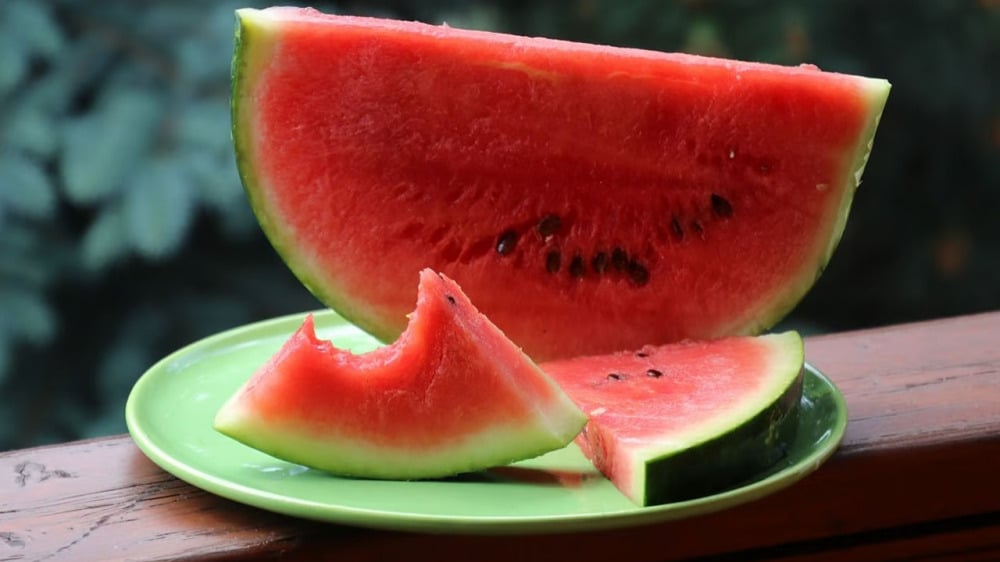
Watermelon is one of the most consumed fruits during the summer season, as it can help us stay hydrated and also has many health benefits. Many nutrients are also present in watermelon. Due to increase in demand in summer, chemicals are also used to ripen this fruit quickly, which can cause great harm to health. Eating watermelon containing chemicals can prove to be extremely dangerous for health. Due to the use of chemicals, watermelon ripens quickly and starts appearing red in colour. Here we get cheated in shopping. Therefore, when you buy watermelon, know whether it is naturally ripe or chemically ripe.
How to identify chemically ripe watermelon?
1. Identify by immersing it in water
Cut a piece of watermelon and place it completely in a pan filled with water. If the color of the water changes then understand that the watermelon has been cooked with chemicals.
2. Leave it for a few days
The easiest trick is to keep the watermelon on the table for 2 to 3 days. If chemicals are mixed in it, it will start rotting rapidly and the fruits kept on the table will start oozing foul smelling juice. If this happens, then understand that the watermelon has been cooked with the help of chemicals.
3. Identify by taste
The natural sweetness of watermelon cooked with chemicals will definitely change. This means the sweetness of the watermelon will reduce. If the watermelon is red when cut but there is no sweetness in it, it means that chemicals have been used in it.
4.Identify with tissue paper
While buying a watermelon, when you cut it, keep a tissue paper on it for 1 minute. After doing this, if red color appears on the tissue paper, then understand that it is a watermelon ripe with chemicals. Therefore you should avoid buying it.
Disadvantages of eating watermelon containing chemicals
Oxytocin chemical is used to ripen watermelon quickly, which is considered extremely dangerous for health. Some people also use calcium carbide to make watermelon pickle. It is believed to release ethylene when it comes in contact with moisture. Consuming this type of watermelon can cause diseases like headache and cancer.
 look news india
look news india